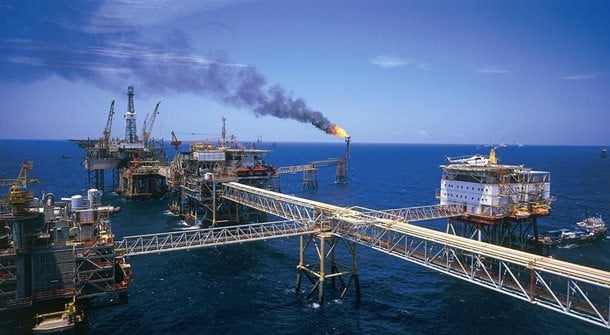The information was released by the International Energy Agency (IEA) on November 24 in its latest report “The Oil and Gas Industry in Transition to Net Zero Emissions”. IEA pointed out that oil producers must choose between contributing to the severity of the climate crisis, or becoming part of the solution to climate change by switching to clean energy.
The oil and gas industry currently provides more than half of the world’s energy supply and employs nearly 12 million people. Yet oil and gas companies account for just 1% of clean energy investment worldwide , and more than half of that investment comes from just four companies.

According to the latest IEA forecasts, even with current policies, global demand for both oil and gas will peak in 2030. Stronger action to tackle climate change will mean a sharp decline in demand for both fuels. If governments fully implement their national climate and energy commitments, demand will fall by 45% from current levels by 2050. If the path to net-zero emissions by mid-century is followed, oil and gas use will fall by more than 75% by 2050. In that scenario, demand
declines are severe enough that new long-term conventional oil and gas projects will not be needed. Some existing oil and gas production will even need to be shut down.
The total value of global private oil and gas companies is estimated at around $6 trillion. And it is predicted that as the world transitions to net-zero emissions, the value of private oil and gas companies could fall by 25% if all national climate and energy targets are met; and by as much as 60% if the world stays on track to limit global temperature rise to 1.5°C.
To be consistent with the 1.5°C scenario, the sector’s own emissions would need to fall by 60% by 2030.
IEA Executive Director FaƟh Birol affirmed: At the upcoming COP28 Conference in Dubai, oil and gas producers around the world need to make strong commitments to help the world meet energy needs and climate goals, instead of placing expectations on carbon capture solutions.
The oil and gas industry is well positioned to scale up a number of key technologies for the clean energy transition. In fact, around a third of the energy consumed in a decarbonised energy system by 2050 will come from technologies that can benefit from the sector’s skills and resources – including hydrogen, carbon capture, offshore wind and liquid biofuels. However, this will require a step-change in the way the sector allocates financial resources, underpinned by a comprehensive plan to reduce emissions across its operations.
Source



![[Photo] Prime Minister Pham Minh Chinh meets with representatives of outstanding teachers](https://vphoto.vietnam.vn/thumb/1200x675/vietnam/resource/IMAGE/2025/11/15/1763215934276_dsc-0578-jpg.webp)
![[Photo] General Secretary To Lam receives Vice President of Luxshare-ICT Group (China)](https://vphoto.vietnam.vn/thumb/1200x675/vietnam/resource/IMAGE/2025/11/15/1763211137119_a1-bnd-7809-8939-jpg.webp)
![[Photo] Panorama of the 2025 Community Action Awards Final Round](https://vphoto.vietnam.vn/thumb/1200x675/vietnam/resource/IMAGE/2025/11/15/1763206932975_chi-7868-jpg.webp)












































































































Comment (0)